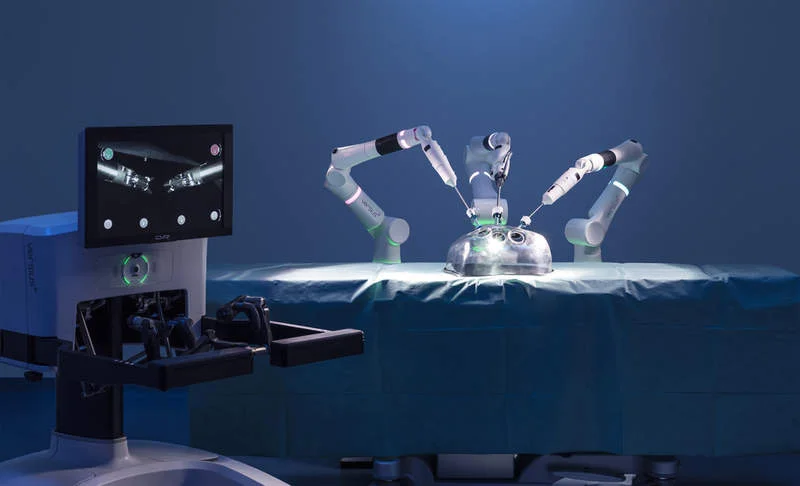Brain-Computer Interface (BCI) companies, such as Neuralink, Precision Neuroscience, and Emotiv, are developing and testing brain chips. These chips are supposed to be implanted into the human brain. On its surface, these products boast the ability to drastically improve the healthcare plans of many people. Yet many could argue the opposite can arise. In fact, in 2024, only 13% of people openly accepted the idea of brain chips for cognitive purposes.

Brain chip visualization
Some of you reading this might believe that brain chips have an uncertain future ahead of them. Truth is, I almost cannot imagine a world in which brain chips as a concept completely fails. It’s like Murphy’s Law: whatever can happen, will happen. Brain chips existing takes the path of least resistance…there’s too much potential involved for the idea to never come into fruition. They are completely novel and contain a unique and non-replicable way of curing illnesses. Having technology that efficiently communicates with the brain, is rare. These companies also have the potential of attracting investors and new employees, seeking to earn bigger bucks.
So, what would really happen if when brain chips become popular?
1. Medical Advancements
Perhaps one of the biggest pros of brain chips is how it revolutionizes healthcare. Neurodegenerative diseases like Alzeimer’s and Parkinson’s, epilepsy, spinal cord injuries, and even some mental illnesses are still considered incurable. Elon Musk has claimed at different times that Neuralink (a leading company in this space) may treat all of these, and more. It is certainly a confident statement, but clinical trials for brain implants have previously shown success.
One individual, Kathy Sanford, became the first person to have a brain-implanted pacemaker. She had been suffering from Alzheimer’s. These electrical wires then send micro signals that are able to normalize the abnormal behaviour of a brain with Alzheimer’s. The same treatment also holds potential for Parkinson’s and other related diseases.
Rita Legget received a brain implant that she reports signficantly changed her life for the better – until it was removed in a forced surgery. She had suffered from severe chronic epilepy since she was 3. The device gave her a new sense of self – she could predict when her seizures would happen (through electrodes that monitor brain activity), giving her ample time for medication. Ethical discussion aside, this goes to show that brain chips have had years of history and may improve neural conditions.
Since 2024, Neuralink has completed 2 human trials. Both surgeries were technically successes. Noland Arbaugh became their first patient, controlling a computer screen at rapid speeds with only his thoughts. There were errors, however. 85% of the threads on the chip became detached just a month after the surgery. Results for the second patient remain unclear as of yet.
2. Enhanced Cognitive Abilities
This is one of the more controversial ‘pros’ of brain chip development. As mentioned above, only 13% of Americans supported brain chips being used for cognitive functions.
Being connected to a computer through one’s thoughts could allow for rapid mental data searches. Imagine being able to obtain everything on the Internet within seconds. This may cause a complete shift in the education system. What will happen to standard testing? National examinations? Math contests?
Brain chips can also allow for memory augmentation, which could be used to restore lost memories.
That’s not to say there is no benefit at all. Brain chips could theoretically quicken communication between people, since it cuts out the process of having to put your thoughts into words. In the future, perhaps a computer could automatically generate everything you are thinking, allowing others to read immediately. BCIs in general could boost memory, learning speed, and cognitive function.
3. Ethics and Privacy
Implanting a technology chip in someone’s brain is bound to have a list of ethical worries. In medical ethics, doctors are supposed to give patients the best treatment with minimal amounts of harm. Brain chips can cause risk of infection, surgical issues, bleeding, and even permanent neurological damage on the surgery table.
Although brain chips have a set of medical benefits, such as giving more autonomy to paralyzed patients or curing neurodegenerative diseases, people in the future may wonder if the health benefits outweigh the risks.
Additionally, having brain chips may raise privacy concerns. It is a very understandable fear. A co-founder of Neuralink, Philip Sabes, has stated that the chip could be used to control human emotions and moods, possibly by tweaking one’s hormonal levels.
Additionally, since brain chips will be connected to one’s thoughts (allowing control of the computer), that technically means the chip could be hacked. Governments, large corporations, or even individual hackers could breach privacy. Imagine all of your thoughts being recorded as permanent data. What’s worse, being able to collect other people’s thoughts is one step below influencing one’s thoughts.


